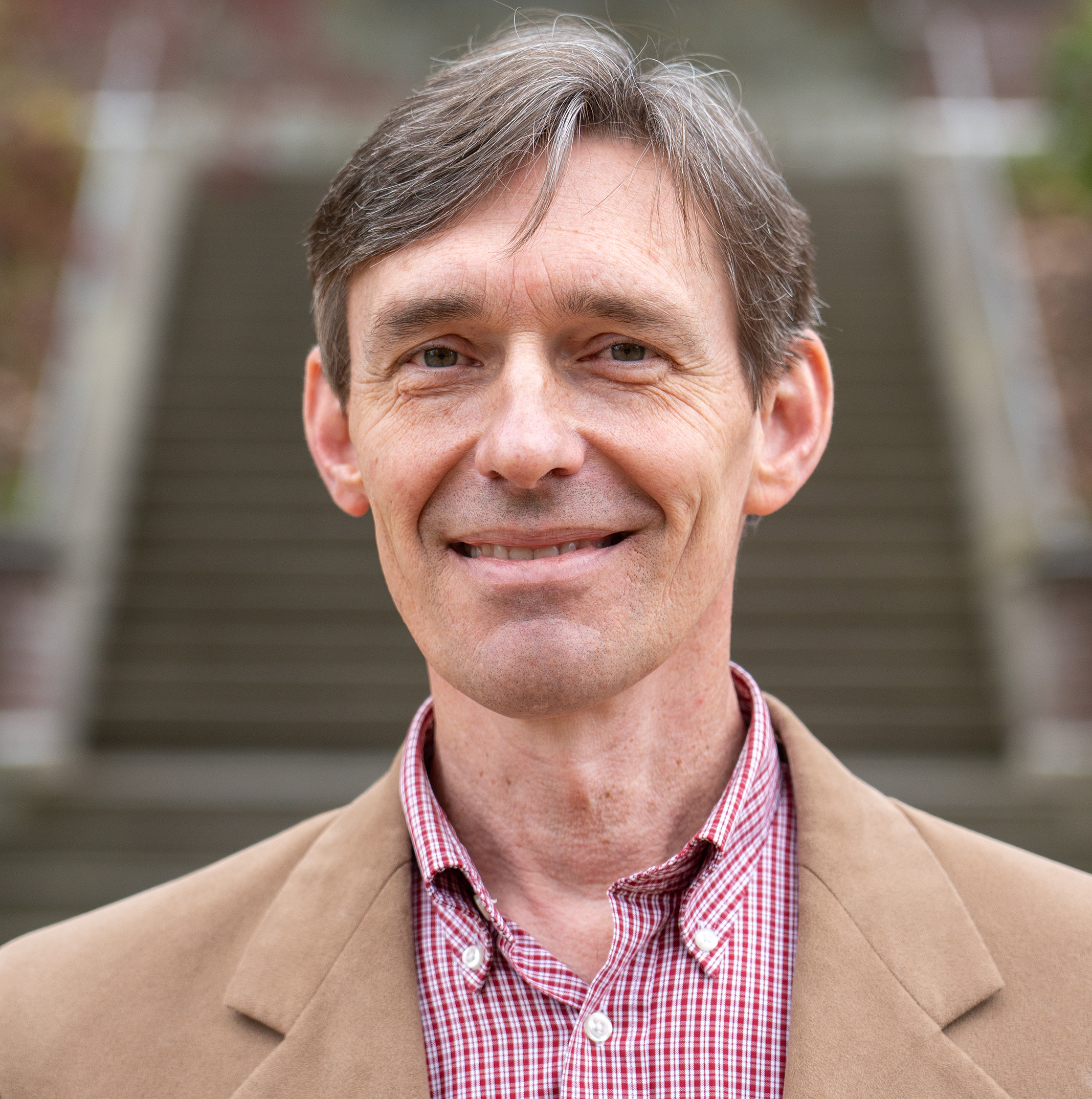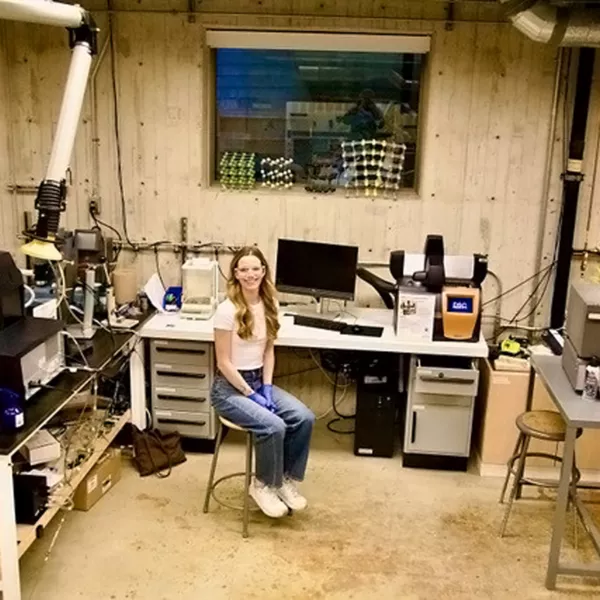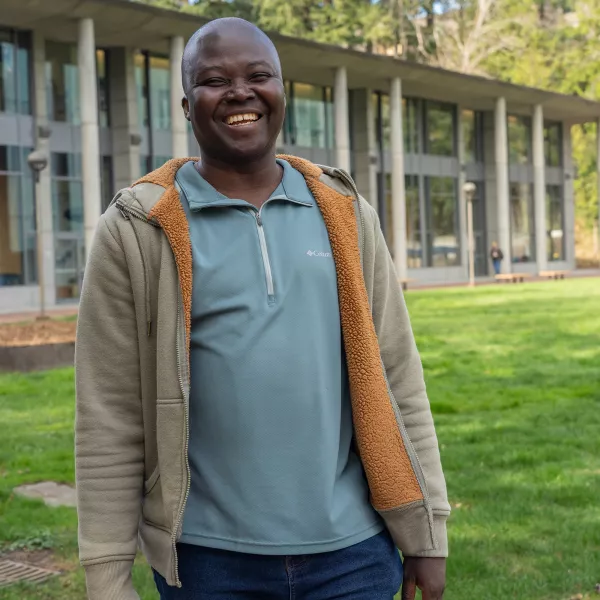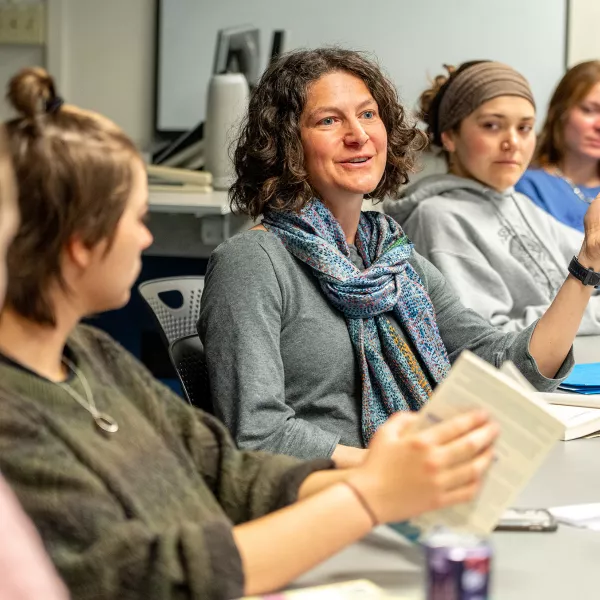Young people, including college and university students, are pelted with bad news about the world they will inherit.
"Higher ed has role to play in climate change solutions," by Darrin Magee first appeared in The Seattle Times.
Vitally important fields such as ecology and environmental science paint a picture of the planet’s natural and physical systems under stress, and the negative impacts of climate change are becoming increasingly widespread, frequent, and irrefutable.
Worldwide, the energy sector — particularly the penchant for burning fossil fuels to produce heat and electricity — is the greatest contributor to climate-altering emissions. In the United States, the transportation sector outweighs the energy sector in terms of overall emissions, but not by much. It is no surprise that many young people suffer from climate anxiety and struggle to find hope for the future.
Fortunately, higher education has a crucial role in combating that sense of hopelessness, and not simply because higher education is itself empowering. Crisis often begets opportunity, and higher ed has a generational opportunity to train the individuals who will lead the energy transition and help human society move to a renewable, low-carbon, equitable energy future.
By creating or bolstering interdisciplinary energy education programs, colleges and universities signal their commitment to a new energy future, and — most important — to nurturing the talent and expertise that will get us there.
Three basic curricular ingredients seem necessary.
Science and technology of energy production, conversion and use
Fossil fuels are finite, polluting, and increasingly difficult to extract. Other fuels — sunshine, water, wind, and geothermal heat — are nonpolluting, essentially infinite, and their growth rate outpaces global energy demand. Students need solid grounding in the physical science of energy options to understand the fundamental limits of all energy-conversion approaches while recognizing the potential in new approaches like renewables and efficiency.
Business and economics of energy options, trade-offs and new sources of value
Intermittent renewables are increasingly cost-competitive around the world on their own; well-designed carbon taxes or carbon markets would only make them more so. Business, economic, and regulatory frameworks built around fossil-fueled energy systems, centralized generation and externalized costs have to be updated to suit new distributed energy systems in which far more players, from utilities to individual households and EV owners, have more complex and complementary roles to play.
Critical thinking, back-of-the-envelope and synthesis skills
Higher education is uniquely suited to refining that one vital resource — human ingenuity — without which we will undoubtedly fail to negotiate the energy transition and solve climate change.
Graduates entering the energy workforce need to be able to think creatively, critically and on their feet. Those who can synthesize data from different sources, recognize potential leverage points, communicate across expert and lay audiences and find common ground among diverse audiences will find it easier to lead others through the energy transition, whether at the household, factory, municipal, enterprise or regional scale.
Humans will not successfully navigate the energy transition by spreadsheet model, policy template, integrated circuit or CAD drawing alone. Indeed, the energy transition is simultaneously an engineering, economic, scientific, policy, sociological, historical, and ethical problem, and much more. Higher education is uniquely suited to refining that one vital resource — human ingenuity — without which we will undoubtedly fail to negotiate the energy transition and solve climate change.
Many universities are starting to do this work. At the February meeting of the University Energy Institutes Leadership Collaborative in Phoenix, Ariz., directors gathered to discuss energy industry developments and the work being done at institutes and centers on the country. Some institutes are focused on research-to-market. Some grew out of programs built around conventional fossil fuel development, or out of engineering programs. Unfortunately, fewer are focused primarily on renewables or efficiency, or on undergraduate education.
The final session of the meeting asked participants to identify the most important and impactful ways universities can advance the energy transition. The following suggestions emerged:
- Help translate and communicate science and technology for various groups.
- Be the neutral, third-party convener for important dialogues among diverse stakeholders.
- Host living energy laboratories on campus.
- Provide expertise for local governments.
- Be centers of innovation: fundamental science and translational technology.
- Host student-led energy transition events and encourage participation from diverse groups.
- Train students for roles in the energy transition.
- Catalyze experiential learning for students.
At Western Washington University’s Institute for Energy Studies, the above ingredients are baked into our curriculum. Students choose energy studies because they want to feel empowered to do something about climate change, and the vast majority of our graduates do just that, finding their way into meaningful energy careers. Now, at the start of our second decade, we are looking to refine our model, deepen our connections to the local and regional community, and share the experience we’ve gained with other higher ed institutions looking to build or grow their own energy studies programs.



